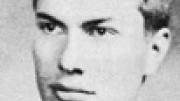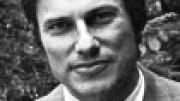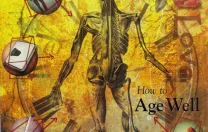In a way, the man who has headed the Grant Study for more than 30 years--and in that sense, is the world's leading authority on Harvard men--seems almost born for the role. George E. Vaillant '55, M.D. '59, is a big, handsome, humorous psychiatrist who appears to be at least a decade younger than his 66 years. His father, archaeologist George C. Vaillant '22, Ph.D. '27, died two years before his twenty-fifth reunion; when the 1922 class report arrived in the mail, his 10-year-old son perused it, fascinated--perhaps the moment when a twig was bent.
Born in Manhattan, Vaillant attended Phillips Exeter Academy, earned two Harvard degrees, and, right after college, married Radcliffe classmate Anne Bradley. This marriage lasted 15 years and was followed by divorce and marriage 30 years ago to his present wife, Caroline (Brown) Vaillant, an Australian. In addition to Vaillant's four children by his first marriage, the couple have a daughter of their own, Joanna.
Vaillant is a colorful character who hardly fits the buttoned-down WASP stereotype one might expect from his résumé. He admits to "living in rumpled clothes" as well as being a dreadful dancer and terrible athlete. "I know little of modern life," he confides, recalling that he once turned down a television appearance on the Phil Donahue Show because he had never heard of its host. In politics, Vaillant declares, "For 25 years I have loved Jimmy Carter, and still think Gorbachev deserved to be 'man of the century.' "
Long ago, Vaillant decided that he preferred greenery to asphalt; today he and his wife live on 140 acres of Vermont woodland where he spends long weekends clearing brush and trails and cutting meadows. "I'd like to be a gentleman farmer," he says. He plays tennis with his wife and daughter, but Vaillant takes "a dim view of jogging." Even so, the doctor's health habits are generally sound, and Vaillant can boast of "HDL to die for."
On Mondays he drives south to Boston in his five-year-old Volvo; Vaillant keeps a pied-à-terre in Cambridge and an o(infinity)ce at Brigham and Women's Hospital. As a researcher, he describes himself as an "oppositional character. What I love is long-term follow-up and proving other people wrong." Trained as a psychoanalyst, he still maintains a clinical practice (clients are mainly physicians), though he has not psychoanalyzed anyone "on the couch" in 30 years. An impressive body of research on alcohol abuse, including the monumental 1983 book The Natural History of Alcoholism, has earned him the status of a "Class A trustee" for Alcoholics Anonymous. (The "A" is for "amateur," since Vaillant himself has never been other than a moderate drinker.)
Play has always come easily. In college, he joined the Lampoon rather than the Crimson, where people seemed to be working too hard in their free time. His father directed museums, and Vaillant himself enjoys museums of all kinds; he also admits that, "left to my own devices, I would have a fork in one hand and a Michelin guide in the other." Once or twice a year, he and his wife go abroad "at someone else's expense."
Each winter, the Vaillants escape to southern Australia for three months, a time for writing and enjoying the house near the beach where they expect to retire. His own retirement plans? "Stay with the Grant Study, play, create, enjoy my children and grandchildren, sow and re-sow the seeds of love," he says. "You've got to learn to garden as you get older. My garden is the Grant Study."







